Mr. Tran Van Canh - one of nearly 50 households in Phu Long town participating in the VietGAP certified organic vegetable production model said that his family has 4 sao, and was supported by the Provincial Agricultural Extension Center to improve the soil with organic microbial fertilizers, so the production efficiency is higher than before. The most encouraging thing is that the quality of vegetables is guaranteed to be safe for the health of producers and consumers, and is more popular in the market.
Safe vegetable production is an inevitable trend.
Vegetables are an indispensable food source in people's daily meals. However, the abuse of pesticides leads to residues, potentially containing many toxic elements, affecting the health of consumers. To meet market demand, farmers are forced to approach new farming methods, aiming at production associated with environmental protection and providing safe food to the market.
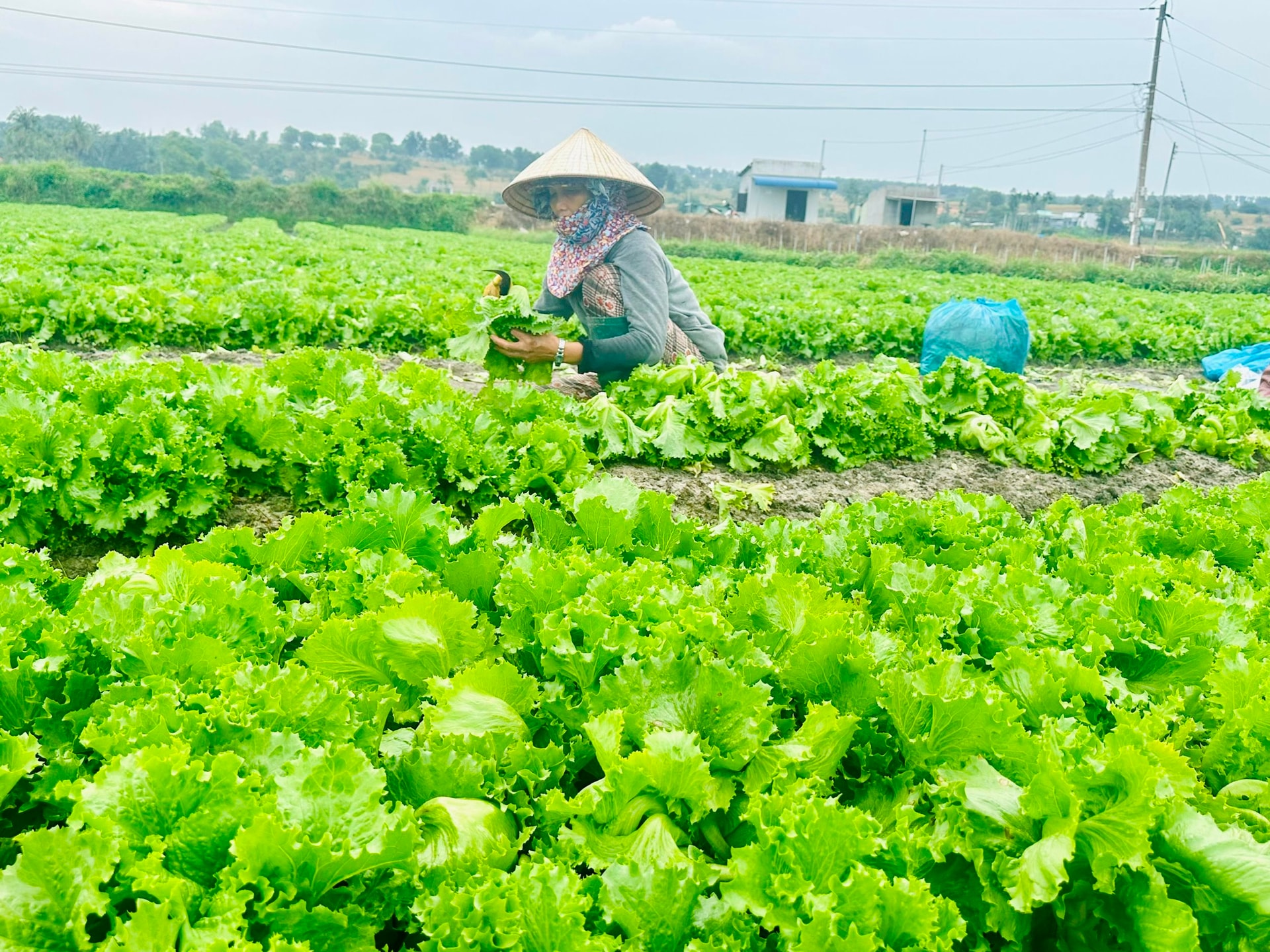
Along with a number of vegetable growing areas in the province, Phu Long town (Ham Thuan Bac) has long been known as an agricultural town, with key crops such as dragon fruit, rice and vegetables. This town currently has a vegetable growing area of over 40 hectares, concentrated in the neighborhoods of Phu Cuong, Phu Truong, Phu An. These are places that specialize in providing many types of vegetables to serve the locality and neighboring areas for many years. However, the common difficulty in Phu Long vegetable area is that the vegetable production area in households is still fragmented, small and scattered. Many farming households are still unfamiliar with keeping electronic diaries, and prices are unstable at times.
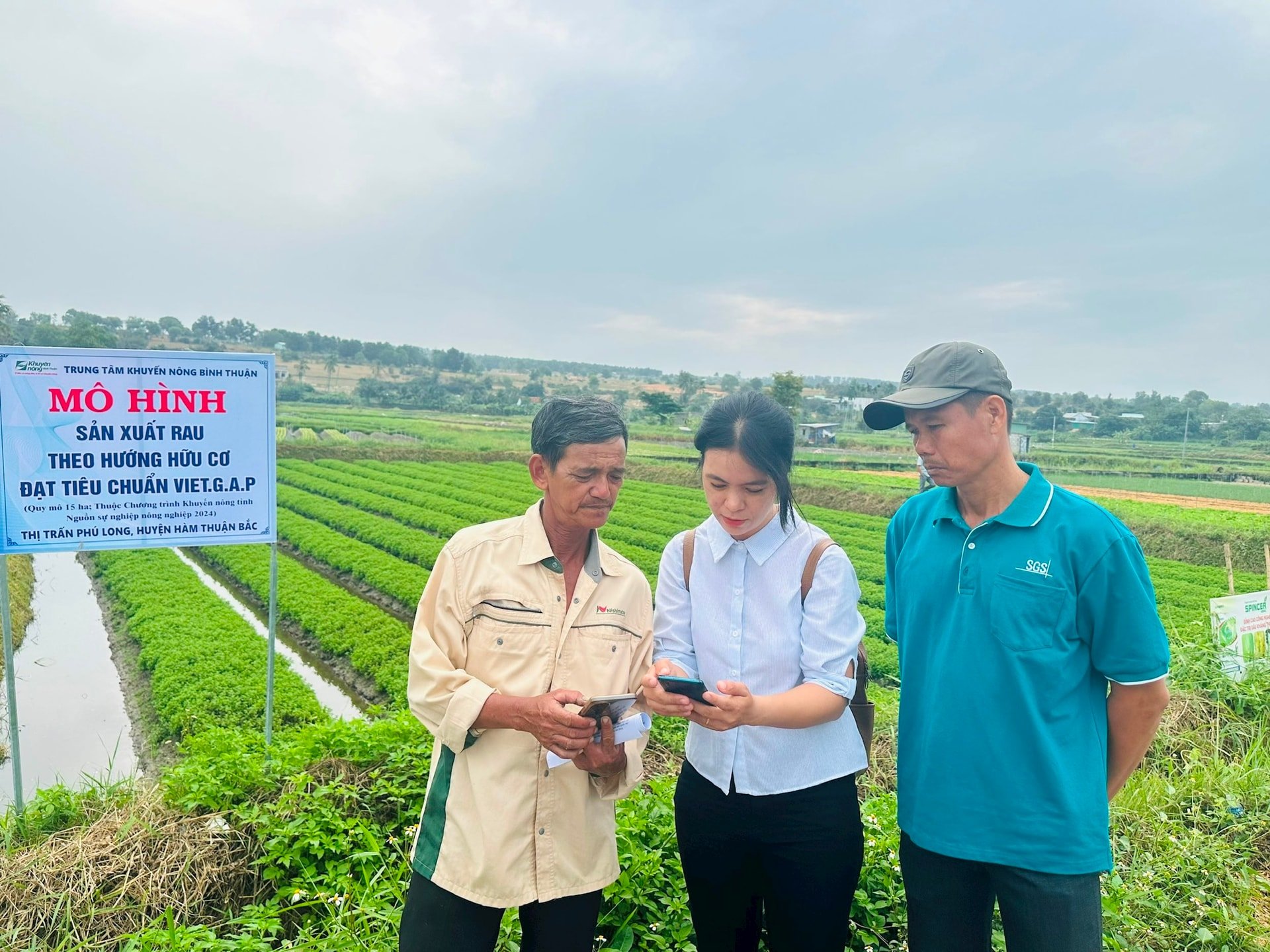
In the last months of 2024, with the provincial agricultural career fund, Binh Thuan Agricultural Extension Center coordinated with the Farmers' Association and local authorities to implement a model of organic vegetable production with VietGAP certification in Phu Long town, with a total area of 15 hectares/47 households. The purpose is to transfer new technical advances in organic vegetable production by applying biological fertilizers and pesticides in vegetable production. Thereby, creating safe products for consumers, friendly to people, the environment...
The provincial Agricultural Extension Center said that households participating in the model were trained in technical measures in safe vegetable production according to VietGAP standards; supported with organic microbial fertilizers... Households also applied VietGAP vegetable production processes such as building places to store fertilizers, pesticides, and labor protection equipment. At the same time, they planted leafy vegetables and herbs outdoors, using lime to treat the soil before planting. During the care and fertilization process, no herbicides were used, but only composted manure, organic microbial fertilizers, and biological fertilizers were used as base fertilizer. In parallel, biological drugs were used to prevent pests and diseases, watering was done 3 times a day; and the quarantine period of 7-10 days before harvesting the products was observed.
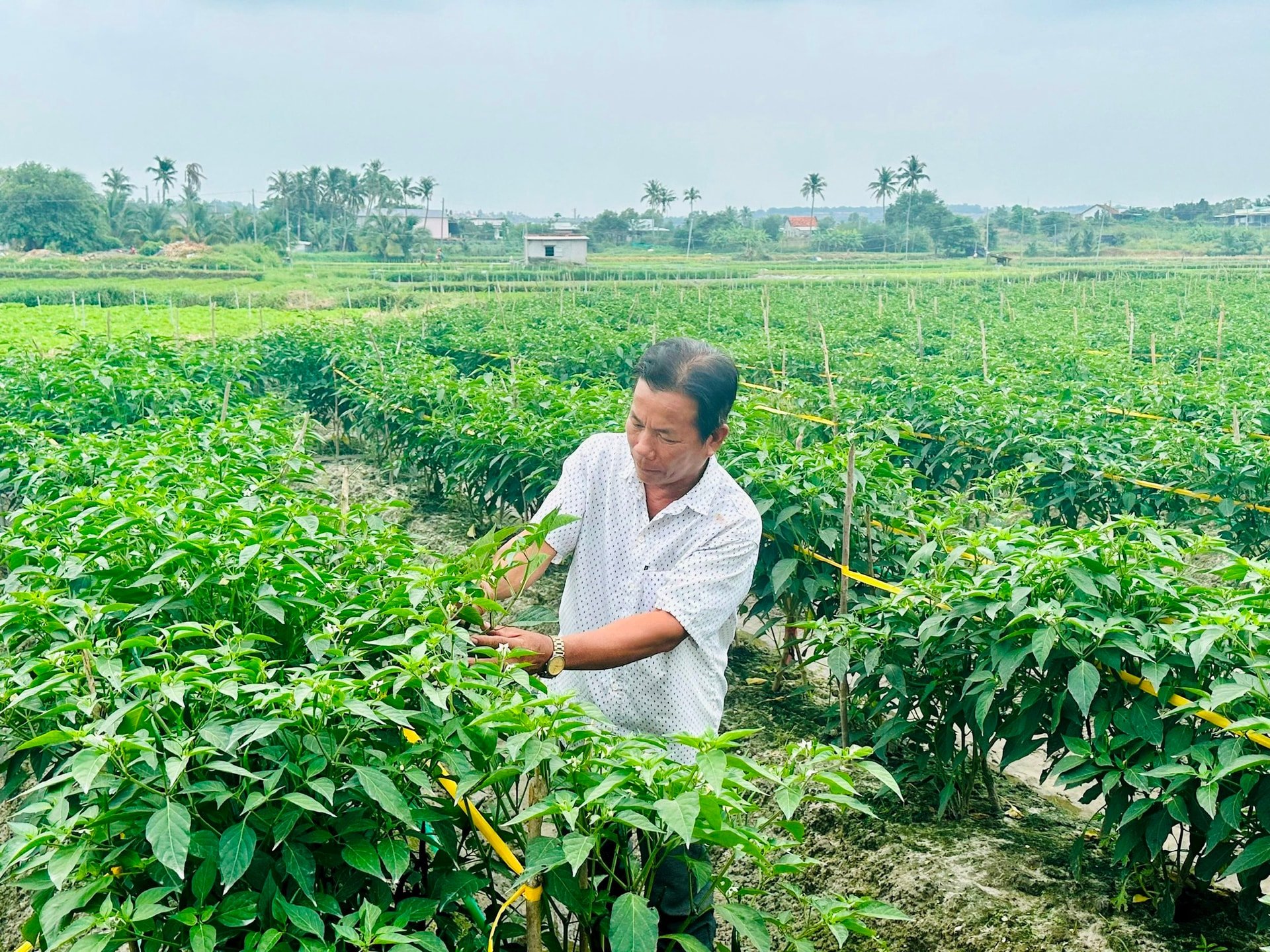
Promote efficiency
According to the assessment of Mr. Ngo Thai Son - leader of the Provincial Agricultural Extension Center, after about 4 months of implementation, it shows that the model vegetables have good resistance, the yield has a difference and increases the soil pH, limiting pests and diseases. On the other hand, households comply with the VietGAP vegetable production process, use organic microbial and biological fertilizers as basal fertilizer; reduce the amount of chemical fertilizers for top dressing, so the vegetables grow and develop well, pests and diseases are reduced, the number of times pesticides are sprayed is reduced, the quality of vegetables is improved. The average yield of leafy vegetables and spices has increased by 12 - 15% and the average profit has increased by 40%. Above all, through the model, it has contributed to raising awareness of safe agricultural production among farmers.
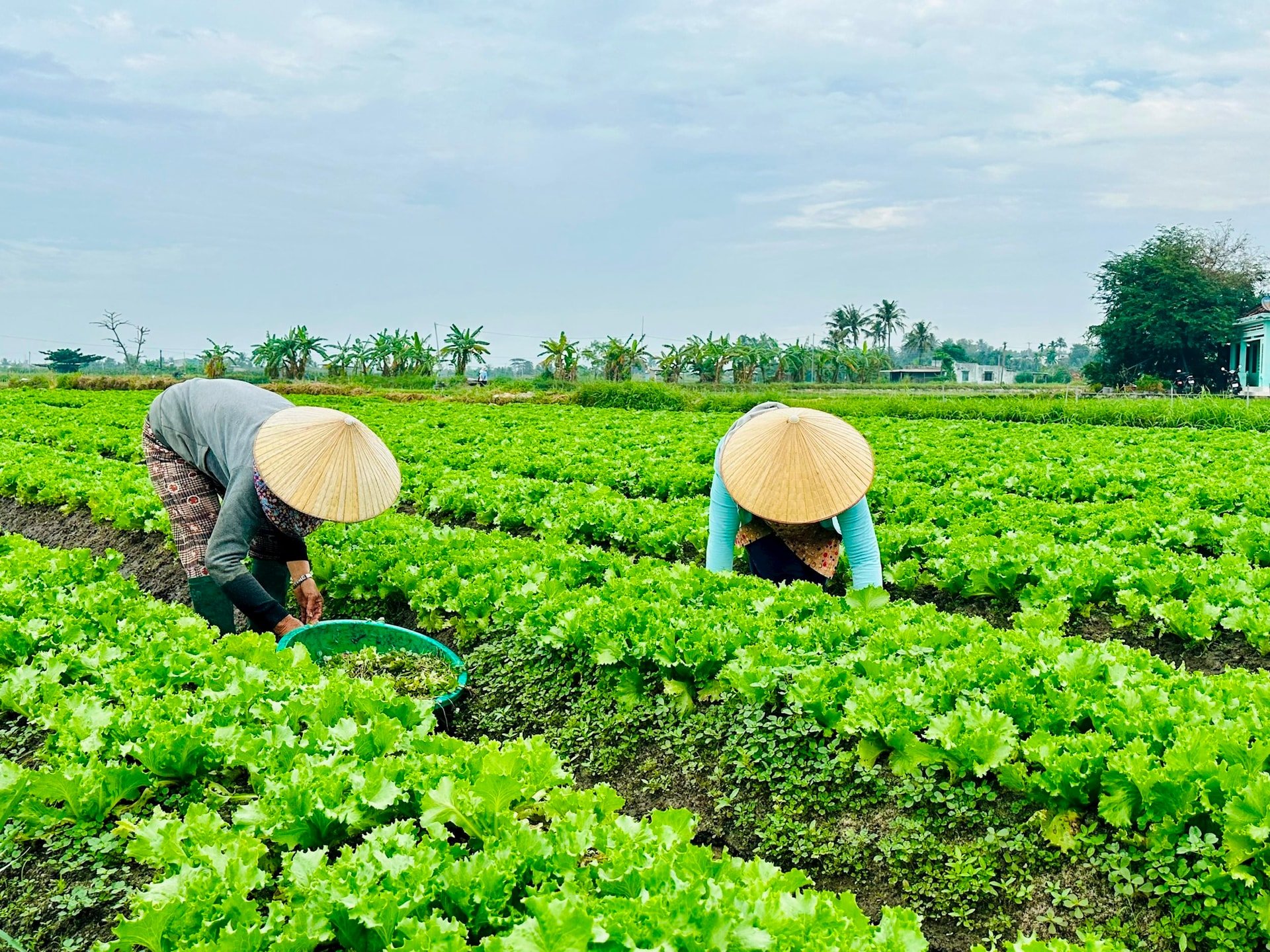
Specifically, compared to the allowable threshold, the vegetable samples taken (bok choy, green onions) through analysis did not detect heavy metal residues, microorganisms E.coli, Salmonella, pesticide residues of the following groups: Organic chlorine, Organic phosphorus, Chrysanthemum, Carbamate. At the end of December 2024, the FAO Certification and Testing Joint Stock Company conducted an assessment and certification of VietGAP for Phu Long Safe Vegetable Production Group.
Currently, when certified VietGAP, VietGAP vegetable products of the cooperative are integrated with an electronic information retrieval system (QRcode stickers). Thereby, helping consumers to retrieve and distribute accurate information before purchasing products for daily meals.
From the effectiveness of the model, the Agricultural Extension Center recommends that the locality continue to maintain and implement the annual VietGAP vegetable production process of all kinds. At the same time, focus on fertilizing with organic microbial fertilizers, gradually expanding the supply market. On the other hand, sign contracts with many partners who need to order, maintain the certified brand, gradually meet higher quality standards. In addition, cooperate with other cooperatives in neighboring areas in the production and consumption of products to diversify products, meet the demand for VietGAP vegetables for the market in and outside the province.
K. HANG
Source: https://baobinhthuan.com.vn/o-vung-rau-vietgap-phu-long-127944.html








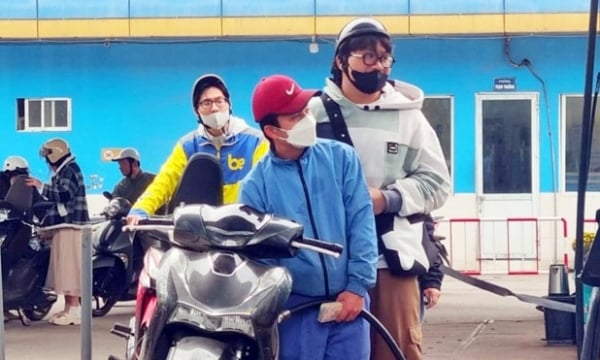

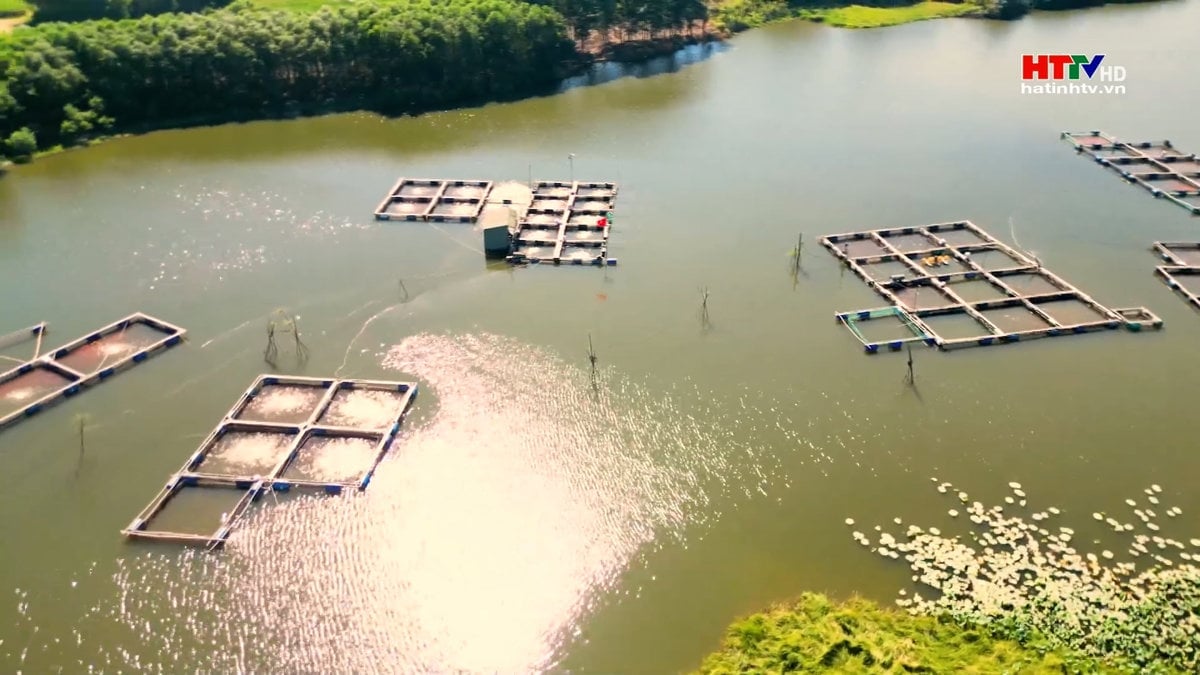
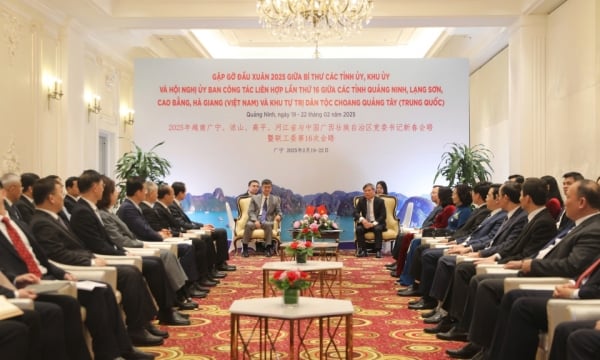
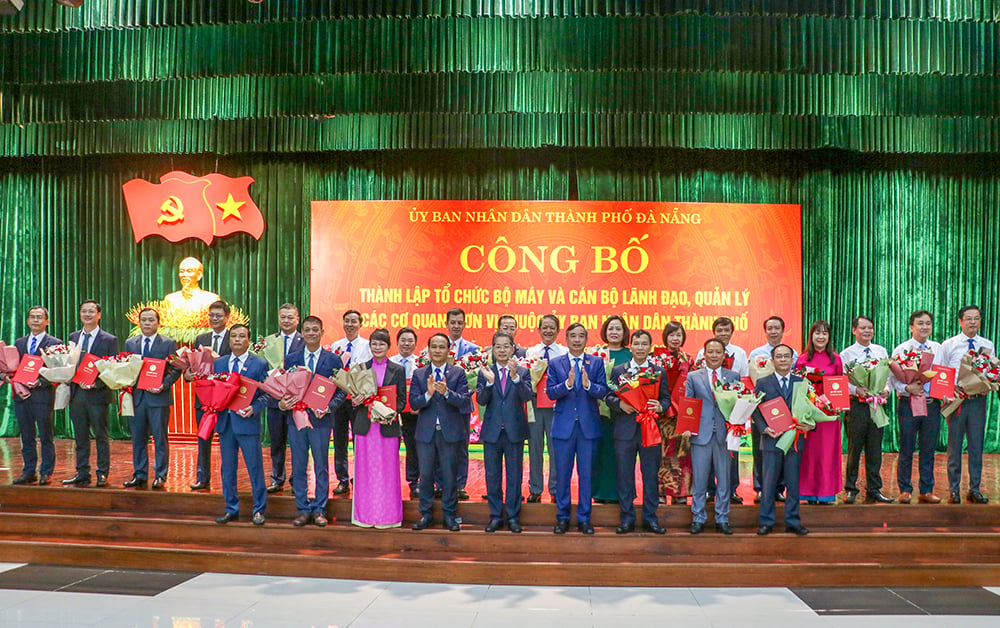
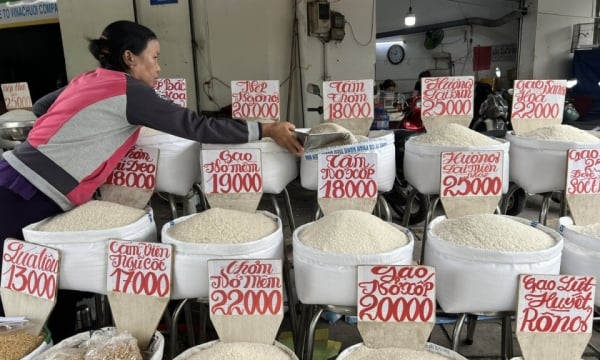

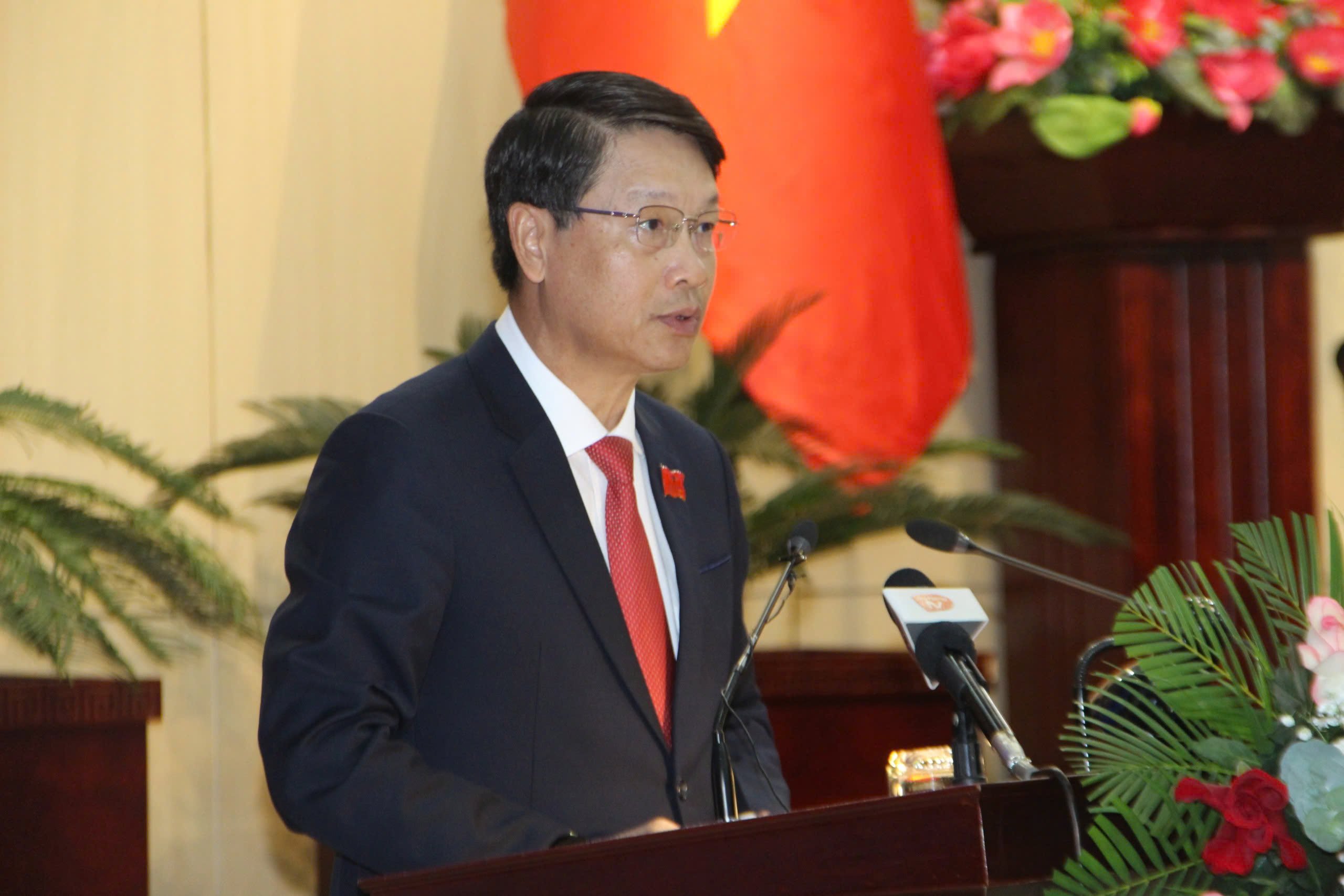
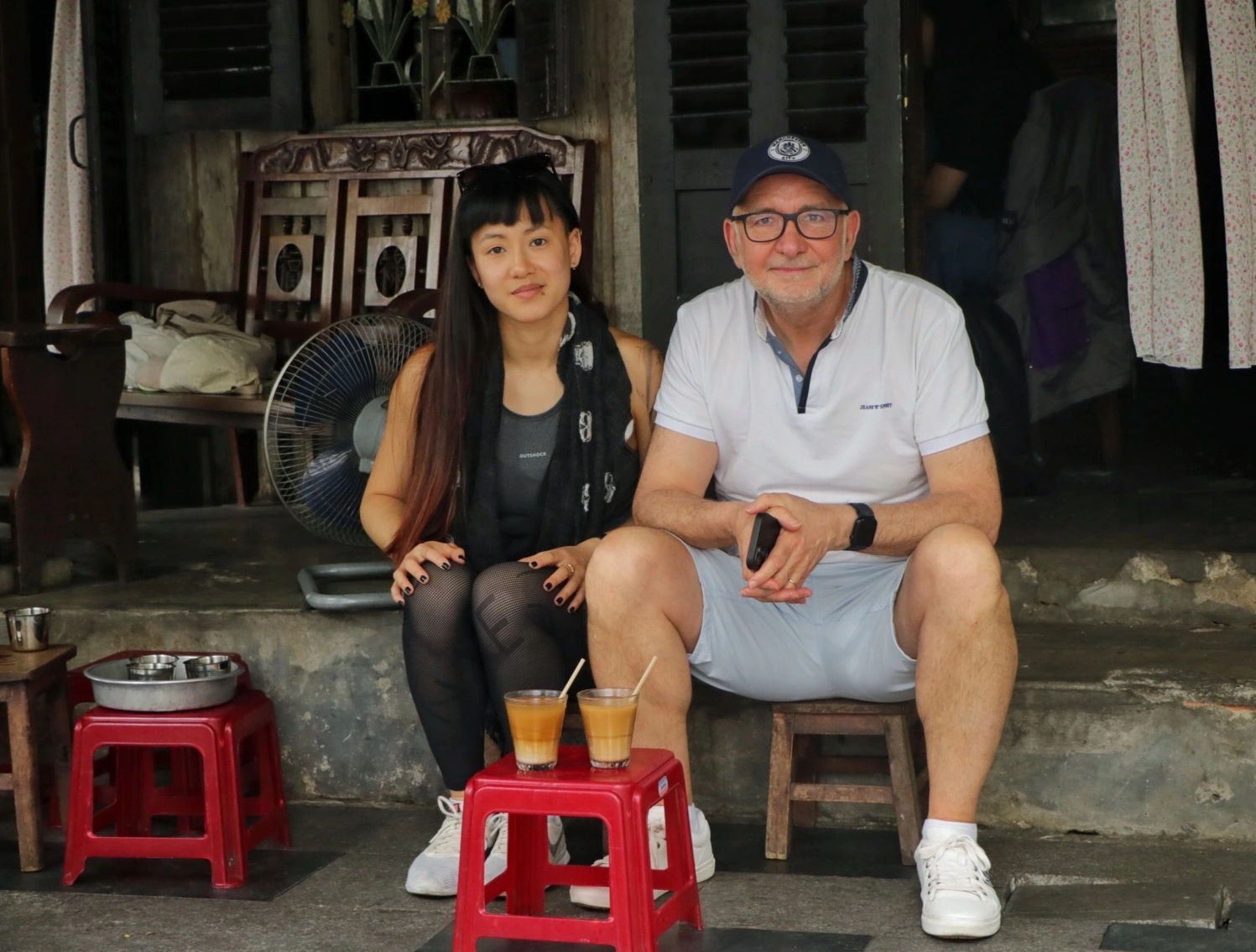

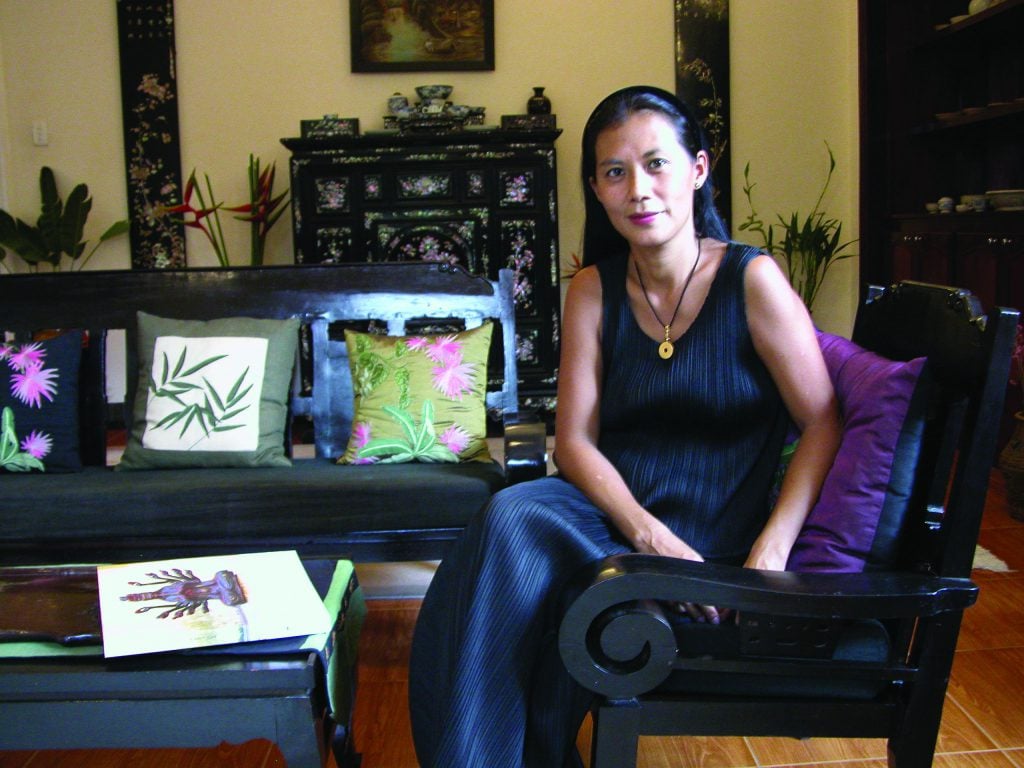



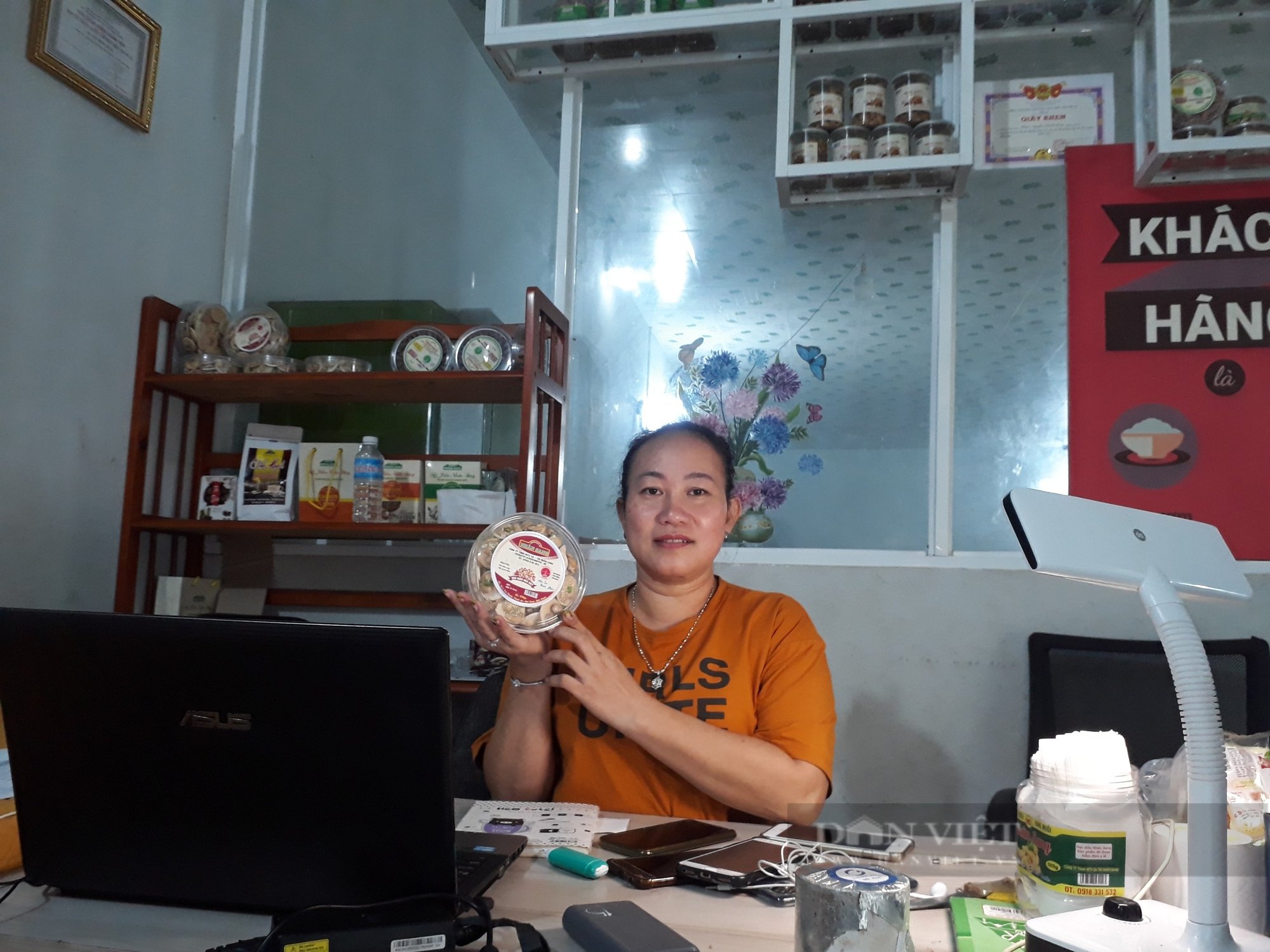





Comment (0)